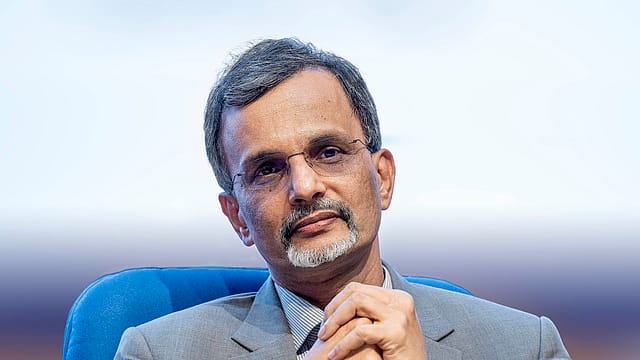Time to abolish 'Jugaad' word from Indian business lexicon: CEA
ADVERTISEMENT

India’s chief economic adviser (CEA) V. Anantha Nageswaran has called for a cultural shift in how micro, small, and medium enterprises (MSMEs) approach business, urging them to move beyond the Indian innovator mindset of jugaad. Often celebrated as a hallmark of Indian ingenuity, jugaad—improvised or makeshift solutions—reflects a reliance on plan B, which, according to Nageswaran, limits the potential for scale and excellence. Instead, he advocates for a mindset of ambition, quality, and global competitiveness.
“I think the word jugaad has to be abolished from the Indian lexicon,” Nageswaran said at the recently held Sankalp Summit held in Varanasi. “It’s like saying, ‘I’m always happy with plan B. I know plan A will never work in this country or for myself, so I’m always going to somehow make plan B work.’ You start straight away lowering your expectations and your market's expectations if you think jugaad is your answer.”
Nageswaran emphasised the need for MSMEs, estimated to be around 63.38 million (non-agri) as per the 73rd National Sample Survey, to shift their focus toward strategic growth and quality improvements. He urged entrepreneurs to embrace a “think big” mentality and set their benchmarks against global standards rather than being content with local competition. “What entrepreneurs should do is think big, focus on quality, and always benchmark against the world rather than benchmarking against the next competition,” he said.
Under the Atmanirbhar Bharat Package, the Government of India has launched a ₹10,000 crore Self-Reliant India Fund to address equity funding challenges for MSMEs. The fund supports Venture Capital and Private Equity firms investing in MSMEs, aiming to encourage corporatisation, fostering growth, and helping these enterprises to realise their full potential as global champions.
The CEA further stressed the importance of scaling operations and building strong teams. “How can I scale? What do I need to do to scale? And, more importantly, be willing to have people who are equally ambitious in terms of taking it on in terms of performance. What is the kind of character that you humble around yourself? In terms of co-founders, etc.?”
Acknowledging the rapid pace of technological advancements, Nageswaran highlighted the necessity of continuous upskilling for MSME entrepreneurs. Staying ahead in a competitive global economy, he said, requires both adaptability and a commitment to innovation.
To strengthen this ecosystem, Nageswaran encouraged MSME entrepreneurs to actively share their experiences and feedback with the government to help identify areas for regulatory reform. “Please do keep giving us feedback on what the governments need to do in terms of deregulation. It is based on your experience and ground reality that governments also will know where all they need to step back,” he said.
According to authors (Navi Radjou, Jaideep Prabhu, and Simone Ahuja Navi Radjou) of the seminal book titled, Jugaad Innovation: Think Frugal, Be Flexible, Generate Breakthrough Growth, Jugaad is a Hindi word that loosely translates as “the gutsy art of overcoming harsh constraints by improvising an effective solution using limited resources.” “This highly resource-constrained and chaotic environment inspires jugaad innovators — i.e., the Indian entrepreneurs and corporations who practice jugaad to develop market-relevant -products and services that are inherently affordable and sustainable,” the co-authors had mentioned in an essay in the Harvard Business Review in 2011.
For India’s MSMEs to unlock their full potential as engines of job creation and economic growth, Nageswaran’s vision calls for a decisive departure from short-term fixes and a shift toward sustainable, globally competitive practices. Judging by this grain of thought, it appears jugaad is falling out of favour with the powers that be.